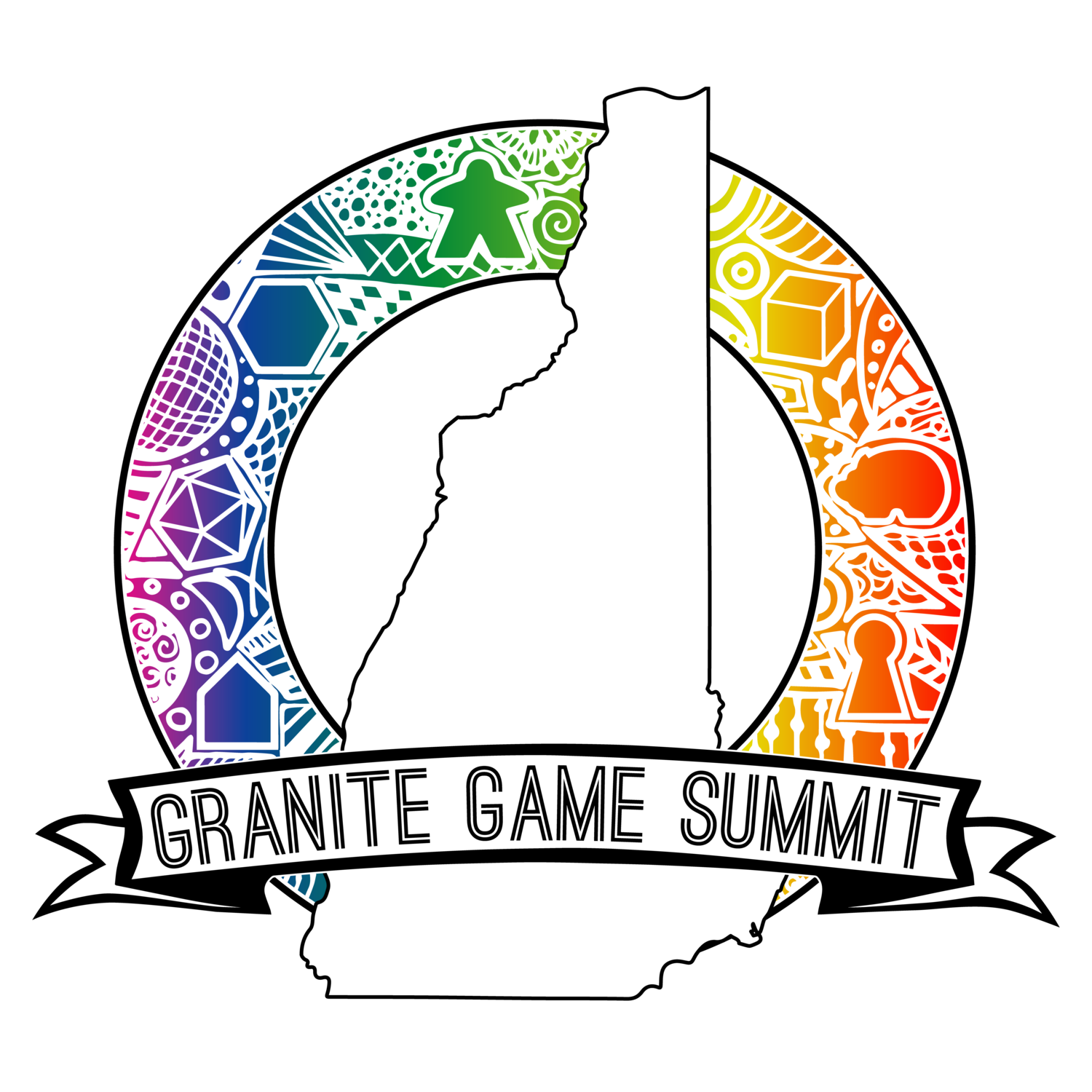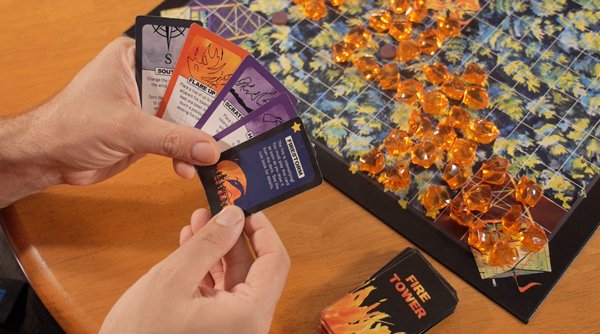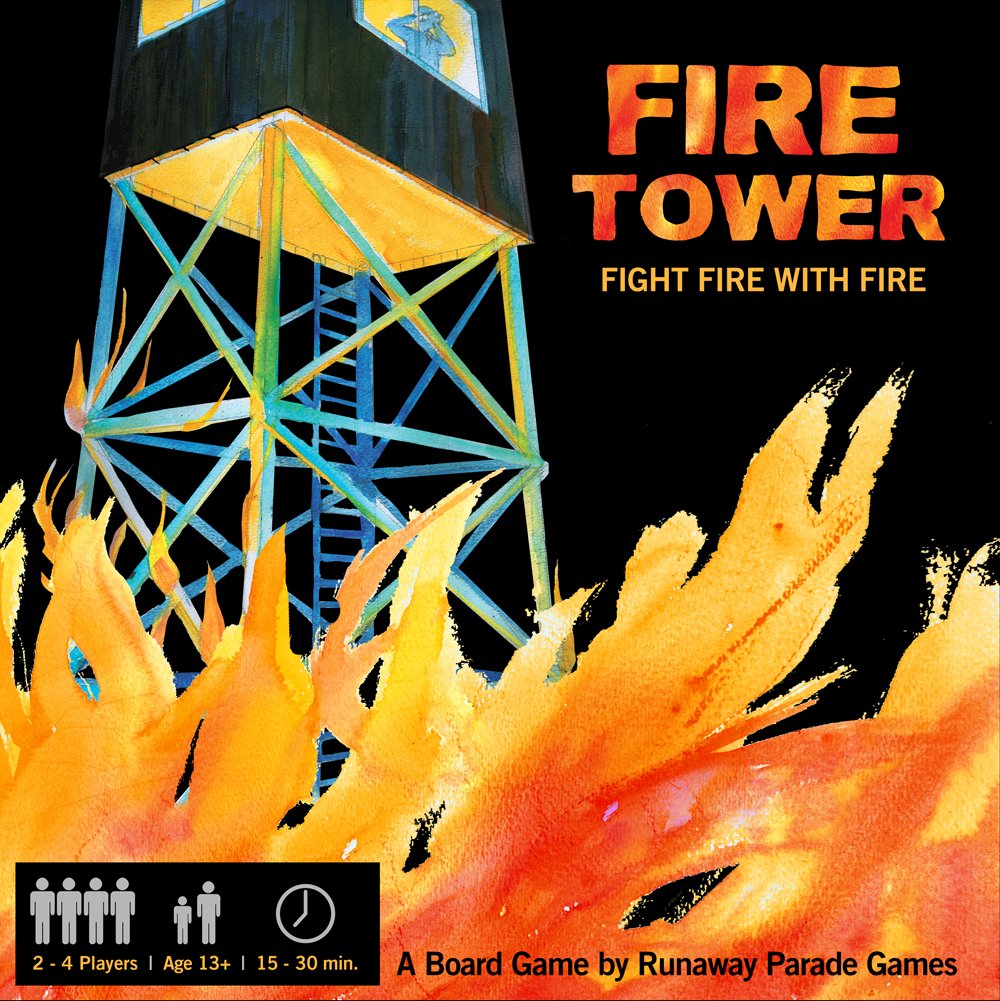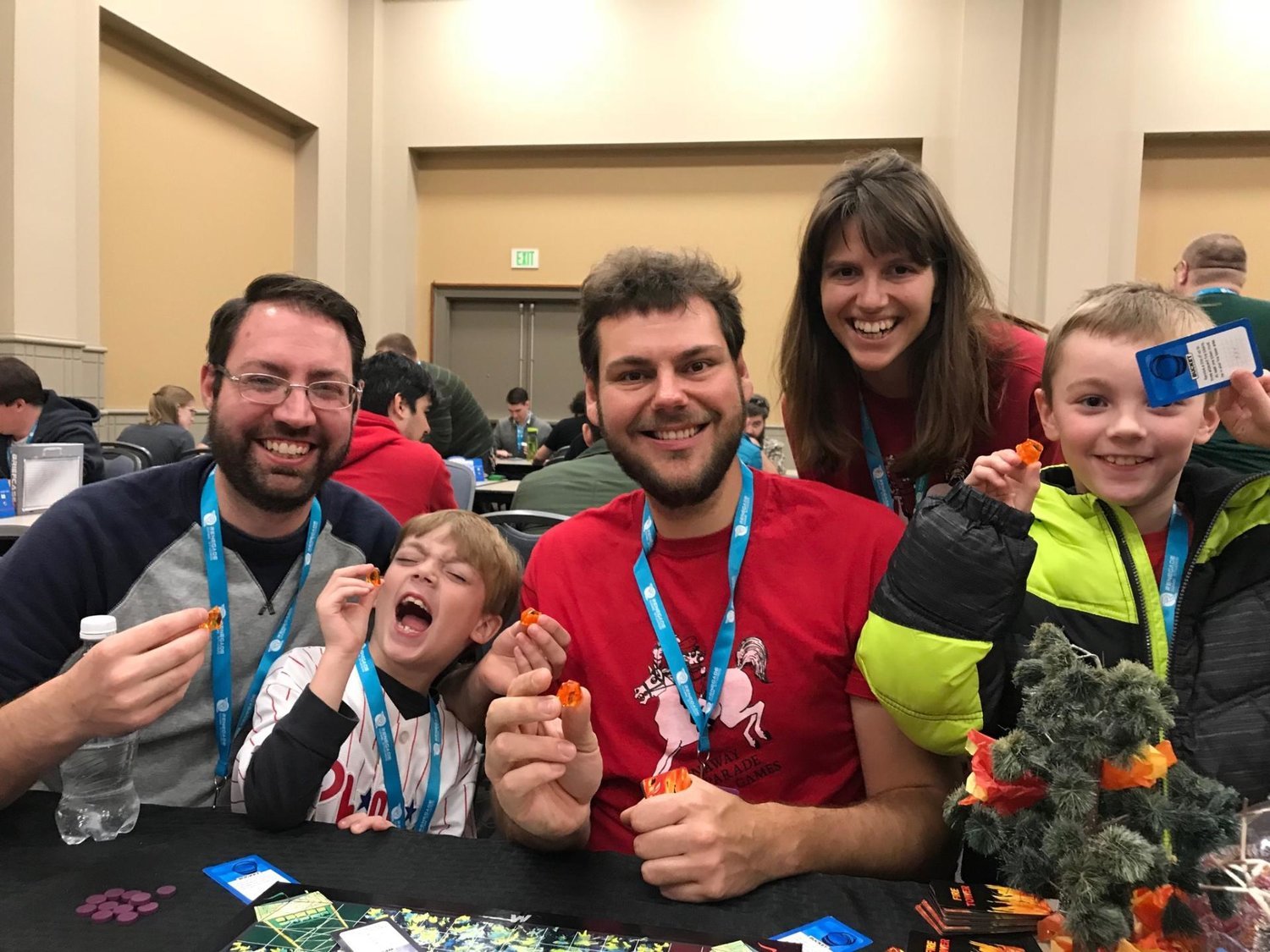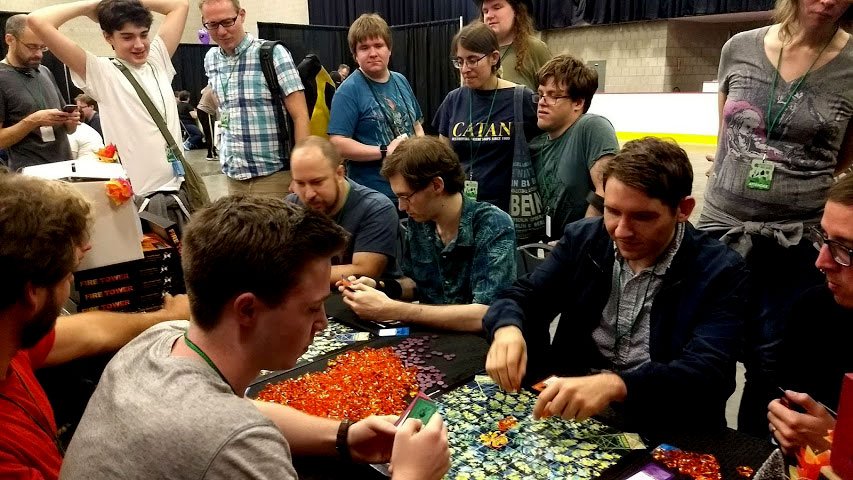Runaway Parade
This week we are featuring Gwen & Samuel from Runaway Parade and designers of Fire Tower. Gwen and Samuel initially met at Sarah Lawrence College in 2007 and a partnership was formed. Runaway Parade began as a multimedia online publication, which you can find the archives here, but after 70 issues they decided it had run its course. Together Gwen & Samuel decided to shift the focus over to their real passion, Runaway Parade the game design company. They are aiming to introduce some new themes into their games as well as use innovative mechanics in their designs. Gwen & Samuel will be showing off Fire Tower at #G2S18. I highly suggest checking it out!
THREE RANDOM FACTS ABOUT GWEN:
Gwen is a quarter Estonian, and has visited her family there many times. Whenever she deal cards she counts to herself in Estonian (pretty much the only Estonian she knows).
For a couple years she freelanced as a food critic. For one of her articles she had to eat over 20 slices of red velvet cake to find the best slice in the neighborhood.
Gwen is almost 30 and just got over her fear of roller coasters.
THREE RANDOM FACTS ABOUT SAMUEL:
Samuel suffers from moderate prosopagnosia (facial blindness) and often has to identify people by their voices.
He plays the dulcimer and people are always asking him, “what’s that strange looking instrument?
Samuel is one of the dwindling few who actually enjoys eating candy corn. In college, while writing a term paper, he absentmindedly devoured an industrial sized bag of candy corn pumpkins and spent the next few hours writhing on the floor.
Questions by Kimberly Revia (KR) answers by Gwen (G) and Samuel (S).
THREE BOARD GAME DESIGN RELATED QUESTIONS:
KR: How did the design process for Fire Tower begin?
G: Sam and I were going for a walk in the woods near where he grew up on Martha’s Vineyard. We were always talking about new game ideas, but we had never designed a game together. We were trying to think of a theme that was unusual, with a natural force that players would have to play against, in addition to playing against each other. Fire seemed like the perfect choice. From there we quickly developed the idea of the wind, that a changing gust would at least partially dictate where the fire was headed at all times. Just a short time after we built our first prototype. The game has changed a lot since then, it is still the same at its core.
S: The foundation of the game came together quickly while we were on a walk in the woods. We’d been kicking around the idea of a game where players were pitted not only against their opponents but also the game itself. We wanted the game mechanics to constitute another force that players must deal with, something slightly removed from the fray and therefore more unpredictable than the other people sitting around the table. The walk led us to the theme of a growing forest fire, an unrelenting presence that can’t be contained. Further research into fires provided a framework for the rest of the core mechanics.
KR: Is this your first time designing as a team?
G: Yes! We have worked on many projects together over the years. For three years, we ran a small online literary and arts magazine together. But games have always been a huge passion for each of us, and this is definitely our biggest co-project so far.
S: This is the first game we’ve developed together! We’ve played tabletop together for years and have spent countless hours creating little games to entertain our friends on long walks. But this is the first game we’ve brought to this point. In a lot of ways the act of designing Fire Tower has been the most exhilarating game we’ve played together.
KR: What has been the most difficult part of the design process for you?
G: The hardest part for me has been slowing down. I have always been someone who plows through to the finish line, and won’t let anything (or anyone) get in my way. Since we are starting a new business and are educating ourselves about game design and development (everything from playtesting to manufacturing to demoing at conventions), we’ve really had to slow down and take the time to learn each step. It’s hard, but it is a rewarding process and I think Fire Tower will be all the better for it.
S: I’ve really had to learn when to let go of game elements that just aren't working. It's difficult to look objectively at the ideas you’ve introduced, and you can find yourself fighting for them despite their failings. Over time I’ve come to appreciate how these dead ends are necessary for the development of the next breakthrough, and how elements of them can often be salvaged and incorporated into a more worthy mechanic. Game design has really turned out to be a process of exploration, and sometimes you need to chase down a bunch of tangents to find your way forward.
THREE QUESTIONS JUST FOR FUN:
KR: What is your favorite game mechanic?
G: My first favorite games were card games I played with my grandfather, like Cribbage, Casino, or Spades. I love a lot of the game mechanics in card games, like hand management, set collection, etc. It would be impossible for me to decide on one favorite mechanic, but recently I have been spending a lot of time thinking about trick-taking games. I want to play more games with trick-taking and I’d love to design a game with some element of trick-taking that doesn't follow the normal formula of classic trick-taking games like Bridge or Spades.
S: I really enjoy the type of puzzle mechanic that occurs in games like Patchwork and Castles of Burgundy. I like how these types of games have two levels; a competitive marketplace where you have to outmaneuver your opponents to capture the necessary resources, and your own personal board where you must plot out the best way to deploy them. The interplay between these aspects of the game play is really appealing to me; not only do you have to figure out the puzzle in front of you, but you also have to consider what your opponent needs and how that will influence you. It’s the ultimate logic.
KR: What television show could you binge watch?
G: The Good Place
S: Currently I’ve been binging The Americans, but I’m always watching a lot of Jeopardy.
KR: Do you have a least favorite board game? If so, what is it about it that kills the game for you?
G: Monopoly! What bothers me the most about it is that a lot of people don't know the amazing world of board games out there. They play Monopoly and they think that’s what all games are like.
S: I not very fond of the flood of Apples to Apples/Cards Against Humanity clones that have appeared recently. Often it feels like the same concept over and over again: watch your friends choose from a few cards that lead them into uttering pre-programmed absurd statements.
Although there are some gems that manage to elicit these responses in a more organic way.
You can find out more about Runaway Parade by clicking the links below.
Website: http://runawayparade.com
Facebook: https://m.facebook.com/RunawayParade/?ref=bookmarks
BoardGameGeek: https://boardgamegeek.com/boardgame/226605/fire-tower
